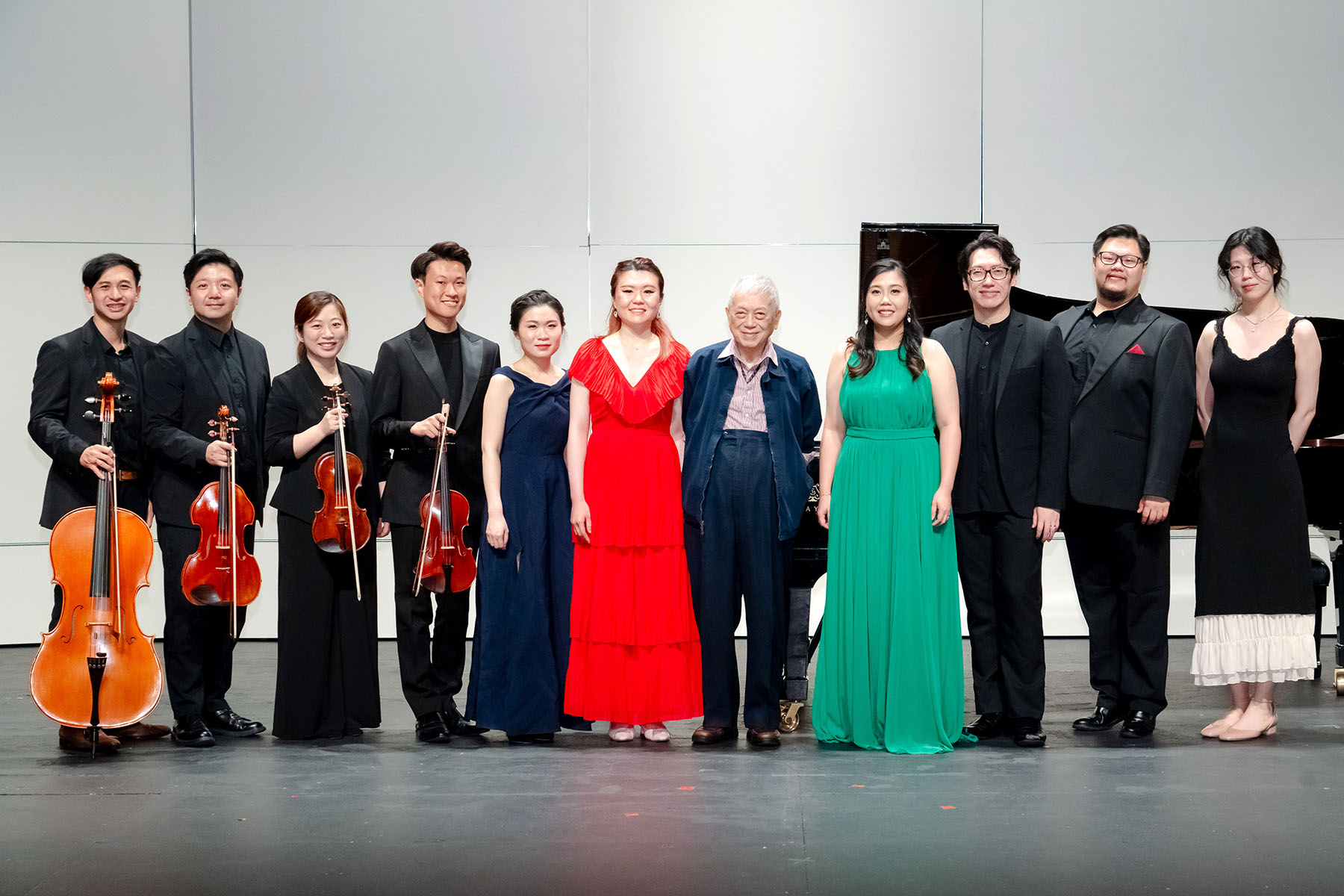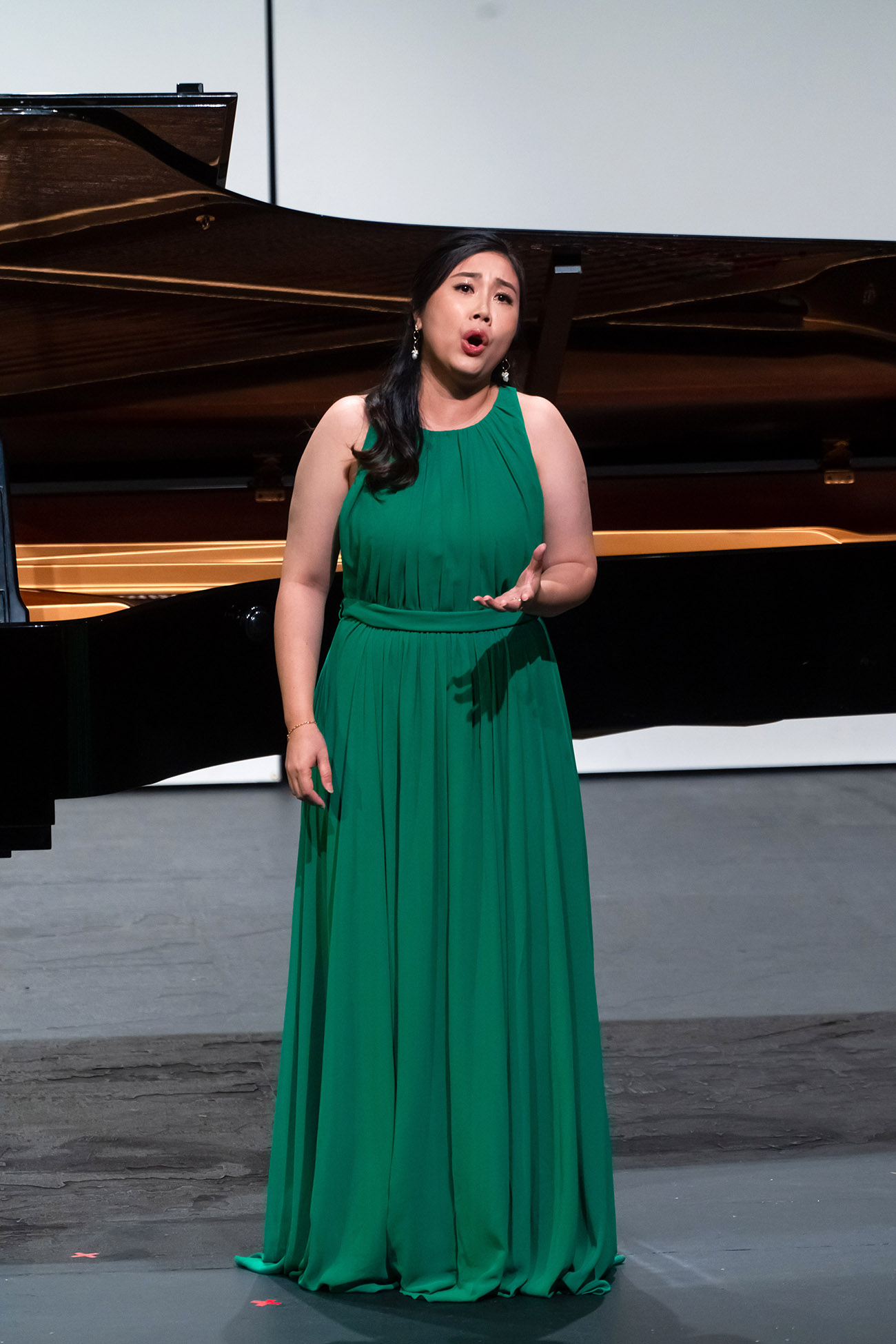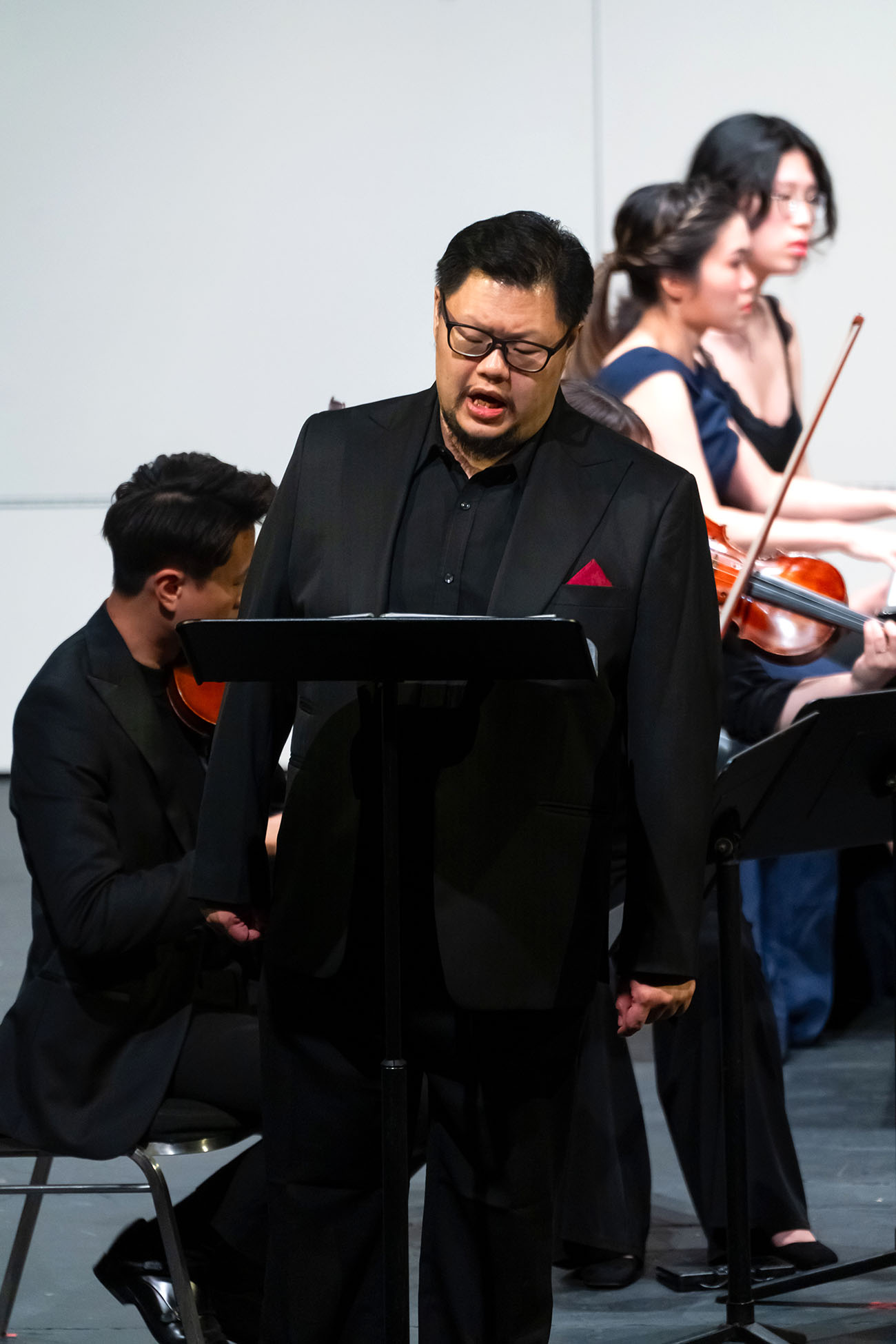
On Aug 14, Musica Viva (Hong Kong), a nonprofit performing-arts company, commemorated the death centenary of Giacomo Puccini (1858-1924) with the concert Puccini’s Rarities. The Italian master composer is renowned for his melodramatic verismo operas. However, the Musica Viva concert focused on Puccini’s minor works: songs, chamber music and arias from his early operas.
“It was a deliberate decision to present the composer’s rarely performed works,” says Musica Viva’s director-general Lo King-man. “Most of the songs included in the concert program have not been performed in Hong Kong before.”
Henry Ngan performed three songs with a powerfully emotive vocal delivery. Among them, Terra e mare (Land and Sea) was composed in 1902. Ngan’s personal favorite, however, is Morire (circa 1917). “Although its title translates as ‘to die’, the melody is by no means dark or sorrowful,” says the tenor. “It is through death that we look at what is life — its pure and shining charms and hopes. At the end of Morire, the glorious top note, full of hope and authority, makes this little song as epic as any of Puccini’s heroic opera moments.”
READ MORE: Tale of intrigue and love in classic opera
Sammy Chien, a baritone, sang the 1896 composition Avanti, Urania!

Soprano Kenix Tsang made her Musica Viva debut by singing three arias. These included two highly popular excerpts, Chi il bel sogno di Doretta (Who Could Guess Doretta’s Beautiful Dream?), and Ore dolci e divine (Sweet and Divine Hours) from La Rondine (The Swallow, 1917) and Se come voi piccina io fossi (If I Were a Little Girl Like You) from Puccini’s first opera, Le Villi (The Fairies, 1884).
“I am grateful for this opportunity to learn and grow,” she says. “Presenting Puccini’s less performed pieces in the composer’s death centenary year is special. The audience discovered a different Puccini at the concert.”
Tsang was slightly nervous about Chi il bel sogno di Doretta, “a technically challenging aria, owing to its beautiful floating high notes”. However, such worries proved to be unnecessary. Her steel-tipped tone rang out in full glory when she sang the line, “Che importa la ricchezza se alfine è rifiorita la felicità!” (how does wealth matter when happiness has finally blossomed again?), and not the least because the idea reflects the soprano’s own philosophy of life.
Mezzo-soprano Bonnie Liu performed Tu il cor mi strazi (You Tear My Heart into Pieces), an aria from Edgar (1889). She also sang Sole e amore (Sun and Love), a “mattinata”, or morning song from 1888 that was incorporated into La bohème (1895) as a duet sung by the lovers Mimì and Rodolfo. The piece leads to a quartet, when another couple, Musetta and Marcello, joins in. Lo says he wanted to illustrate the fact that Puccini often recycled bits and parts of his own works. Later in the concert, the audience got to hear the Bohéme quartet, sung as an encore piece — a chance for them to compare it with the original song.

La bohème is Ngan’s favorite opera. “As Pavarotti says, the role of Rodolfo, the young lover, is one of the most natural roles for a tenor.”
Tsang is a Bohème fan as well and keeps re-visiting Mimì’s arias. “They help me check whether my voice is in good shape,” she says.
Lo says he chose the singers based on the quality of their voices as well as their interpretative ability. Joined by excellent pianists, the soloists displayed exquisite bel canto technique, vocal range, coloratura passages, and winsome vocal phrasing.
ALSO READ: Symphony of the stars
Among the instrumental works heard that evening were String Quartet in D Major, Crisantemi, Adagio in A Major, Foglio d’Album, and Piccolo Waltzer.
“The appeal of Puccini’s music is universal and everlasting,” says Lo. “Like all great works of art, it can create an instant rapport with listeners all over the world.”
Musica Viva will conclude their celebration of Puccini in December, with a staging of Il Trittico (1918), a trilogy of one-act operas — Il Tabarro, Suor Angelica and Gianni Schicchi — in Hong Kong.


